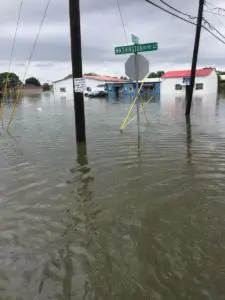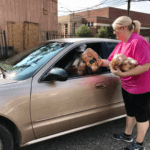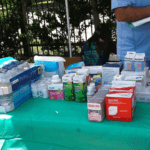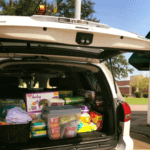Free and Charitable Clinics are the communities’ response to their health care needs. In times of disaster, Free and Charitable Clinics serve as first responders helping people access the care, medications, and supplies that they need.
Want to help clinics and communities affected by recent disasters? Donate below to support disaster relief efforts…
In the event of a disaster, such as hurricanes, wildfires, floods, etc., the NAFC reaches out to members in affected areas to offer guidance, assistance and needed resources. We connect clinics to our relief partners Direct Relief, Americares, Heart to Heart International, and Project Hope. We coordinate response efforts between NAFC partners, state associations and members to ensure that those in need are able to get assistance in an easy, streamlined manner.
In response to past disasters, the NAFC has been able to distribute funding and donated supplies through our various partnerships. For example, $3.5 Million in grants were distributed by NAFC through our partnership with Direct Relief over a two-year period to NAFC members affected by 2017 Hurricanes Harvey & Irma.
The NAFC also has a customizable emergency management plan for NAFC members to utilize and has and continues to hold various webinars and educational sessions on emergency preparedness and response.





Disaster Relief Information
Key things for clinics to do when affected by a disaster:
- Provide a list of items, medications and supplies to the NAFC that your organization needs to continue operations. The NAFC receives numerous questions from colleagues, partners, donors and volunteers around the country on how they can help.
- Keep detailed records of everything you are doing. This includes precautionary measures that were taken in advance of the hurricane such as sandbagging around the clinic doors, hiring people to move expensive equipment, and volunteer hours for those who came to help with any preparation (track their time and get names and social security numbers – if possible). Also, please document actions taken during the storm, including things like volunteer hours, equipment being used and how long it runs (i.e.. generators, dehumidifiers, etc.), as well as any medications and other resources you are providing.
- Take pictures of all damaged property, equipment, supplies and medications. Regarding medications specifically, in addition to photos, please make a list of the medications that are lost and those that are needed to provide care (if there is a record of medications that had been ordered, that will be helpful to pull).
- Be on the look-out for when FEMA and HHS (in coordination with the state and usually announced by county) will hold applicant briefings. As the NAFC becomes aware of these briefings, we will notify our members. There will be separate briefings for businesses, individuals and non-profits.
FEMA Assistance
Registering online at DisasterAssistance.gov is the quickest way to register for FEMA assistance since the event will last several days and the full scope of damages may not be evident until the storm has passed. If you are unable to access the internet, you can also call at 1-800-621-FEMA (3362).
NAFC Members – Disaster Damage & Needs Assessment Form
Please take a moment to complete the simple NAFC Disaster Damage & Needs Assessment Form below if your organization sustained damage during a disaster.
If you have any requests/needs for funding or assistance, need help getting in touch with one of our disaster relief partners, or if you have any general questions – please contact us at [email protected] or call 703-647-7427. We are here to help!




